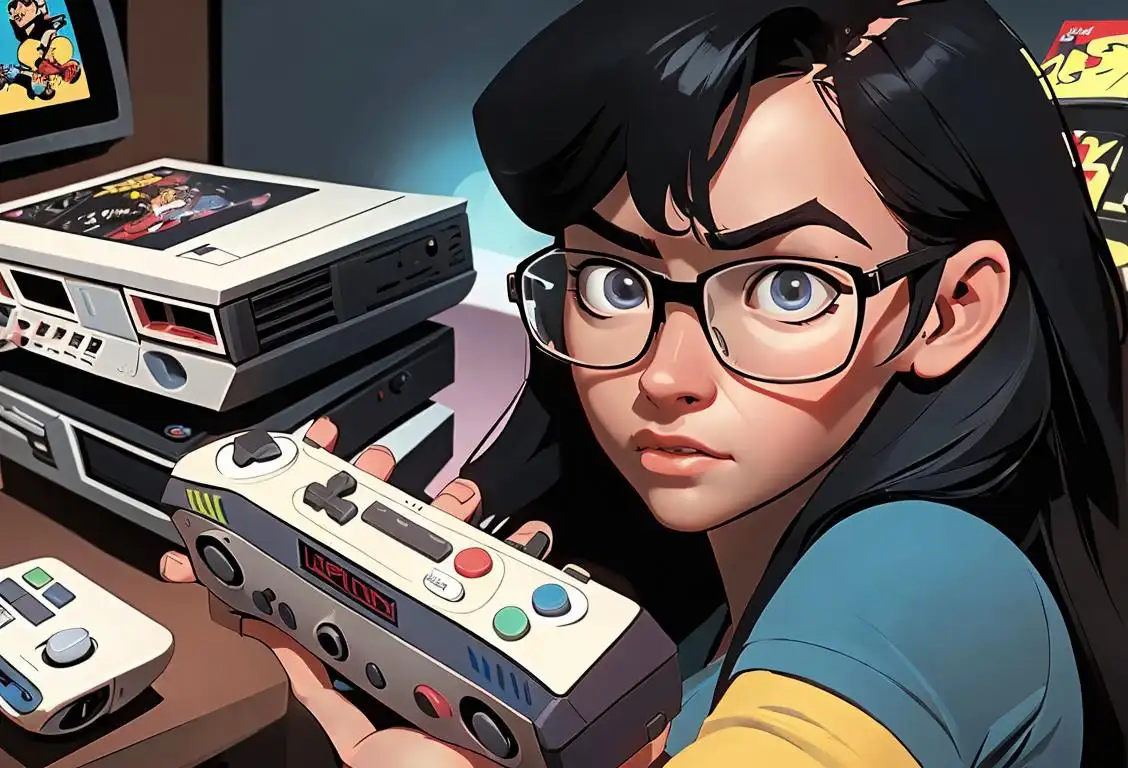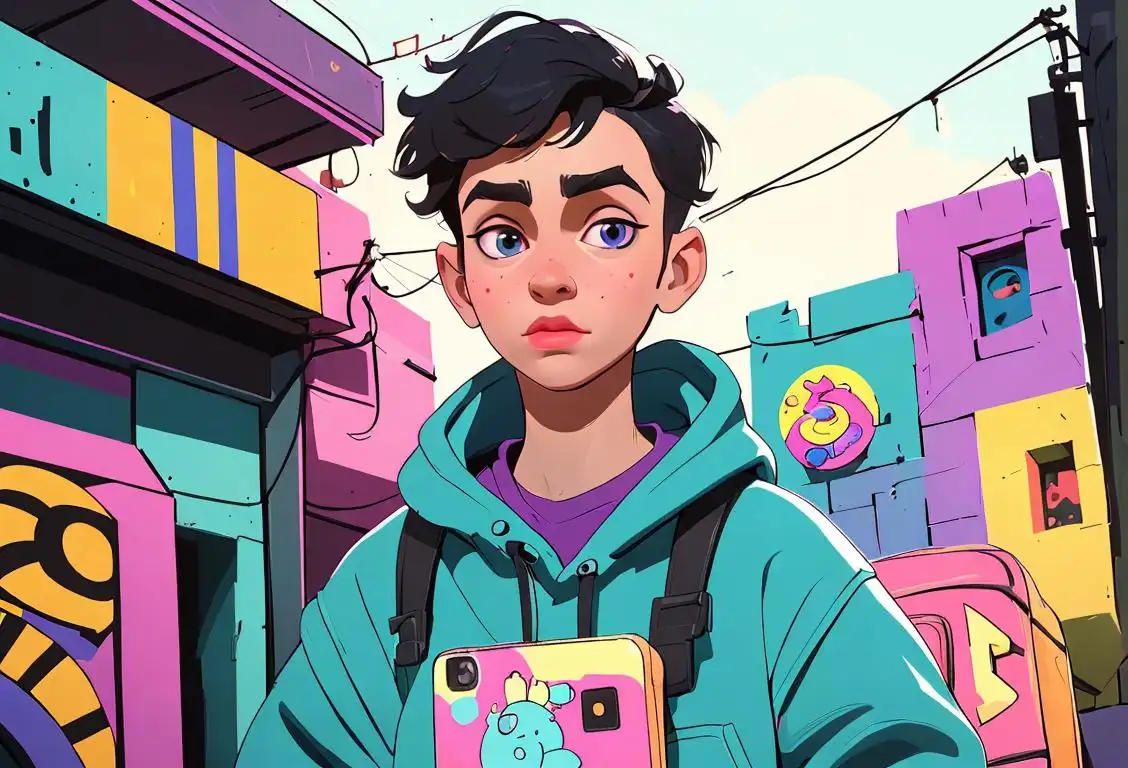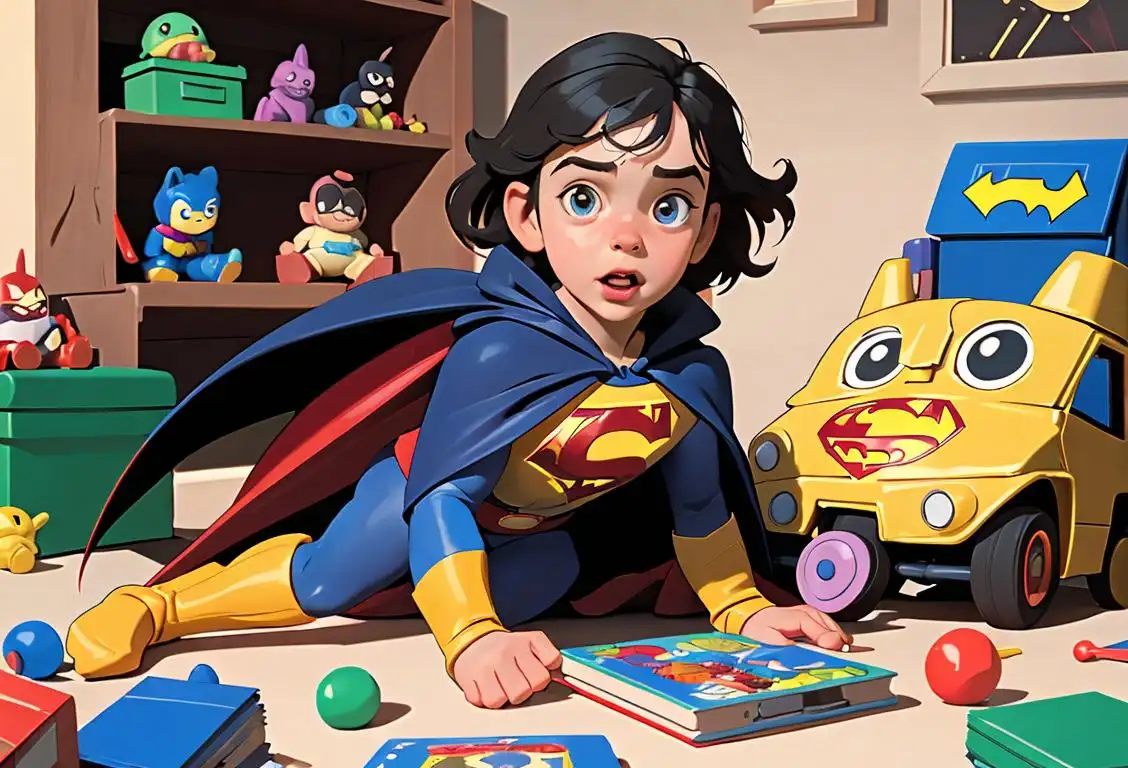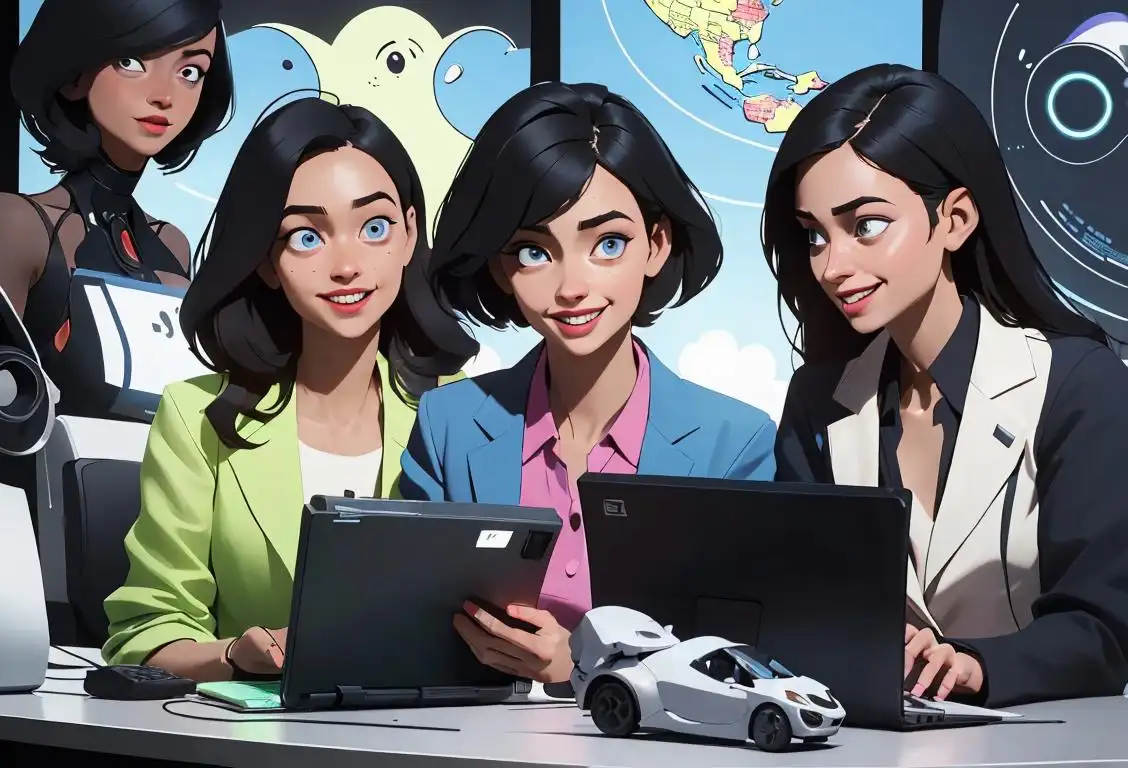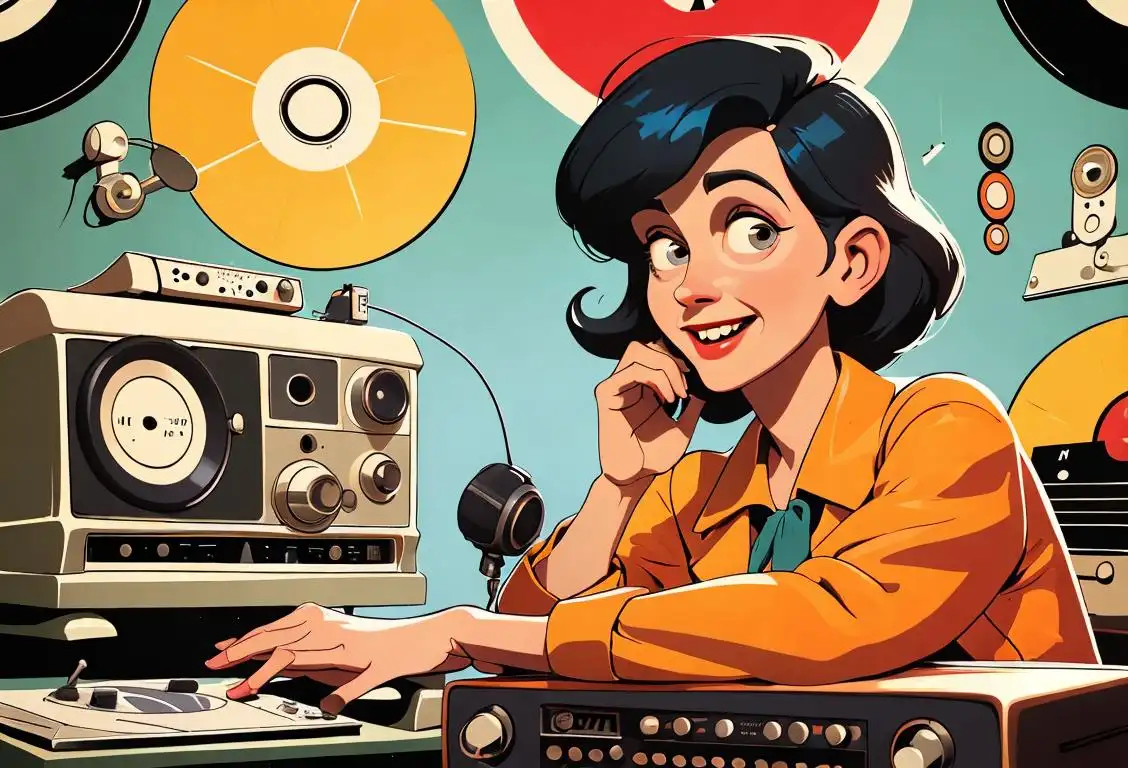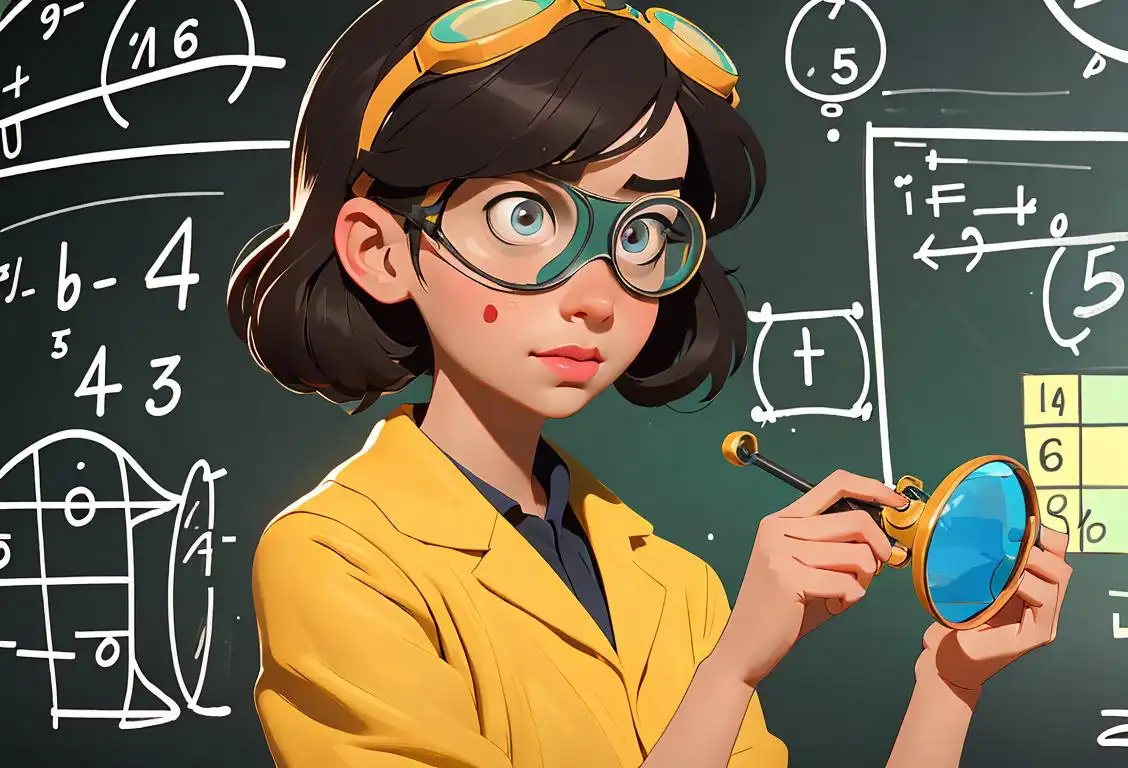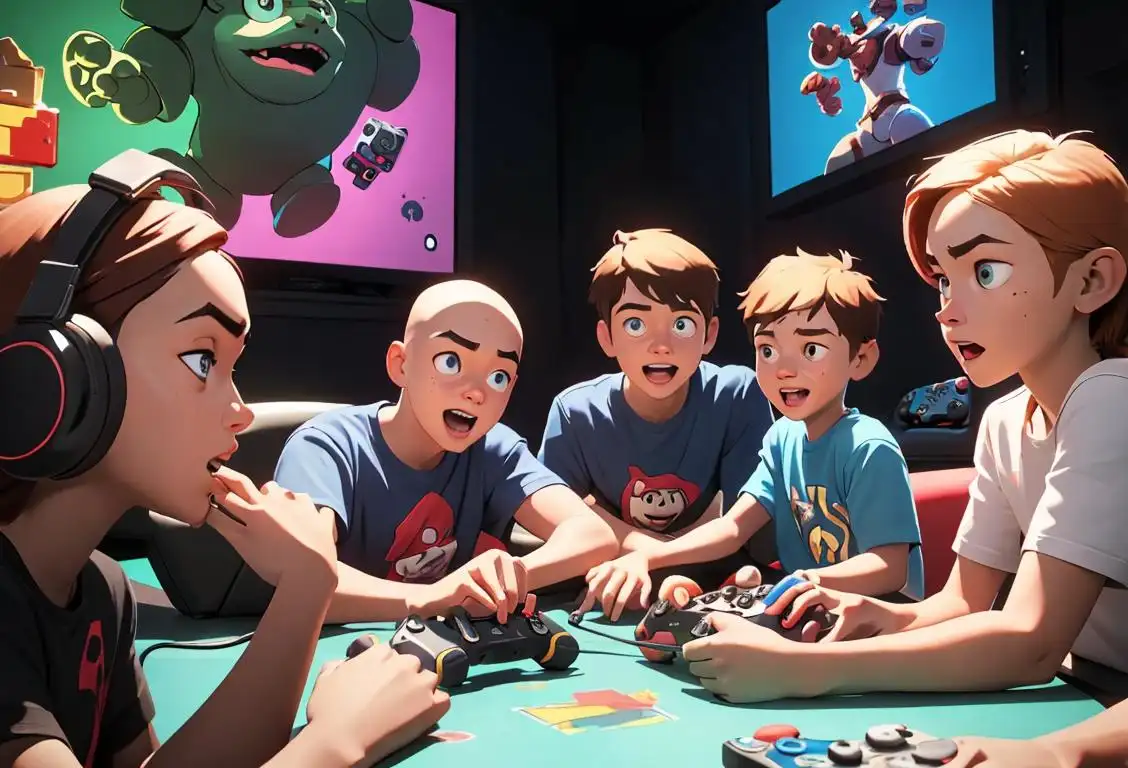National Geek Day
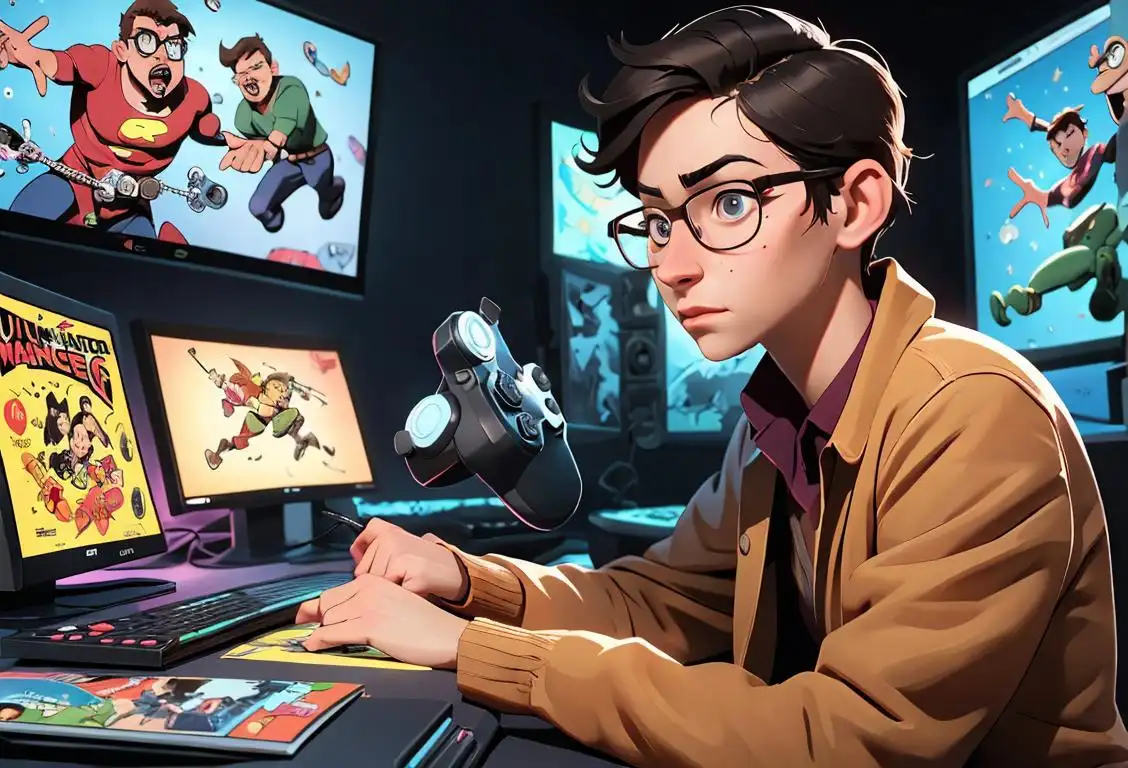
Welcome to National Geek Day, the day where we celebrate all things geeky and embrace our inner nerds! Whether you're a comic book enthusiast, a fan of video games, or a master of all things tech, this day is dedicated to you. So grab your pocket protector, put on your favorite superhero cape, and get ready for a day filled with all things geek!
When is Geek Day?
It's national geek day on the 18th July.
The Birth of National Geek Day
Every year on July 18th, geeks around the world gather to celebrate National Geek Day. But how did this geek-tastic day come to be? Well, it all started on the internet, of course.
In the early days of the World Wide Web, a group of passionate geeks found solace in online forums and chatrooms. They shared their love for everything geeky, from Star Wars to Dungeons & Dragons, and bonded over their mutual obsessions. One day, an idea sparked: why not create a special day to honor their geekdom?
And so, National Geek Day was born. It quickly gained popularity among the online geek community and spread like wildfire across the web. Now, every year on July 18th, geeks from all walks of life come together to celebrate their unique interests and revel in their geekiness.
How to Celebrate National Geek Day
There are countless ways to celebrate National Geek Day, so let your geek flag fly and embrace your passions! Here are a few ideas to get you started:
- Dress up as your favorite geeky character and attend a comic book convention or cosplay event. Let your creativity and geeky spirit shine!
- Host a geek-themed movie night with your friends. Whether you're into sci-fi classics or epic fantasy films, grab some popcorn and enjoy a night of nerdy cinema.
- Organize a game night and challenge your friends to a tabletop or video game marathon. Dust off your old board games or fire up your favorite gaming console for a night of non-stop geeky fun.
No matter how you choose to celebrate, remember that National Geek Day is all about embracing your passions and connecting with fellow geeks. So go ahead, geek out to your heart's content!
History behind the term 'Geek'
1950
The Birth of Geek Culture
The term 'geek' was first used in the 1950s to describe circus performers who would perform bizarre and often freakish acts, such as biting off the heads of live chickens or eating snakes. These performers were typically seen as peculiar and socially awkward individuals who were passionate about their unusual talents.
1976
The Birth of Geek Culture
The term 'geek' was first popularized in 1976 by the American writer and journalist, John Markoff. He used it in an article for the San Francisco Examiner to describe the techno-enthusiasts who were passionate about the emerging field of personal computers. These early geeks were often seen as socially awkward individuals, deeply engrossed in their technological pursuits.
1950
Early Origins
The term 'geek' is believed to have originated in the American circus and carnival in the early 1900s. Back then, a 'geek' referred to a performer whose act included bizarre, often grotesque, feats like biting the heads off live animals. These performers were considered outsiders and were seen as strange and socially awkward.
1950
The birth of 'geek' in the circus
The term 'geek' originally referred to a person in the circus sideshows whose main act was to bite off the head of a live chicken or snake. These performers were often seen as odd and grotesque, creating a sense of fascination and curiosity among the audience.
1950
The Birth of Geek
The term 'geek' traces its roots back to the 1950s when it was first used in circus slang to describe performers who engaged in bizarre and non-mainstream acts. These performers were often seen as eccentric and were known for their unusual interests and talents.
1950
Origins in pop culture
The term 'geek' first appeared in the 1950s and was rooted in the world of carnival performers. It was initially used to describe individuals who would bite off the heads of live animals as part of their act, such as snakes or chickens. These performers, known as 'geeks,' were considered to be on the fringes of society and were often seen as strange and socially awkward.
1970
From Circus to Tech
In the 1970s, the term 'geek' started to transition from the world of circus to the emerging tech industry. With the rise of the personal computer and technology enthusiasts emerging, 'geek' became associated with those with a deep passion for computers, programming, and all things tech-related. It was during this time that the term began to take on a more positive connotation, signifying expertise and enthusiasm rather than peculiarity.
1960
Expanding into computer culture
With the emergence of computer culture in the 1960s, the term 'geek' started to be used to describe individuals who were highly knowledgeable and passionate about technology and computers. These were the early pioneers in the field, often seen as socially awkward but brilliant in their technical skills.
1984
Geek Chic: The Rise of the Geek Stereotype
In 1984, the release of the comedy film 'Revenge of the Nerds' further popularized the geek culture. The film portrayed geeks as outcasts who triumph over their popular counterparts through their intellect and humor. This movie helped shape the image of geeks as intelligent, albeit socially awkward, individuals who were fiercely passionate about their interests.
1970
Transition to computer enthusiasts
In the 1970s, the term 'geek' underwent a transition and started to be associated with computer enthusiasts. As the world of computing began to expand and gain popularity, individuals who were highly skilled and knowledgeable about computers were referred to as geeks. These geeks were passionate about technology and often spent hours programming and exploring the possibilities of computers.
1960
Computer Geeks Enter the Scene
In the 1960s, with the rise of computers, the term 'geek' started to shift its meaning. It became associated with individuals who had a deep interest in computers and technology. Computer geeks were known for their extensive knowledge and passion for all things related to computer programming, often spending countless hours tinkering with machines or writing code.
1960
Computing Connection
In the 1960s, with the rise of technology and the emergence of computing, the term 'geek' underwent a transformation. It started being used to describe individuals who were highly passionate and skilled in the field of computers and technology. Geeks were often seen as socially awkward, preferring the company of machines over people.
1984
Geek chic and its pop culture influence
In the 1980s, the term 'geek' began to experience a shift in perception. With the rise of personal computers and the tech industry, being a geek became associated with intelligence and expertise. The mainstream success of movies like 'Revenge of the Nerds' and TV shows like 'The Big Bang Theory' further popularized the image of geeks as endearing and lovable individuals with a deep passion for their interests.
1970
Geek Chic: A New Perception
During the 1970s, the perception of geeks started to shift. With the emergence of prominent tech figures like Steve Jobs and Bill Gates, the image of the socially awkward computer nerd began to transform into that of a successful and influential individual. This gave rise to the concept of 'geek chic,' where being a geek was suddenly seen as cool and trendy.
1984
Geek Chic emerges
1984 marked the emergence of 'Geek Chic.' The popularity of technology and the rise of personal computers brought the term 'geek' into the mainstream. With the introduction of home computers like the Apple Macintosh, being a geek became somewhat of a trend. Geeks were now seen as cool and stylish, with their oversized glasses, pocket protectors, and love for all things tech.
1990
Geek Chic
During the 1990s, 'geek' underwent a cultural transformation as it started becoming a trend that was embraced by popular culture. The rise of geek culture in movies, television shows, and comic books helped redefine the term. Geekiness became cool and fashionable, and being labeled a geek was no longer an insult but a badge of honor.
1980
Geek Chic
The 1980s saw the emergence of popular culture icons like Steve Jobs and Bill Gates, who were celebrated not only for their technological advancements but also for their unconventional personalities and fashion choices. This gave rise to a new perception of geeks as stylish and desirable individuals. The term 'geek' began to evolve into a more positive and aspirational identity.
1990s
The Geek Renaissance: Tech Revolution
The 1990s witnessed a significant rise in the popularity of the Internet and technological advancements. This period marked a shift in the perception of geeks, as their technical skills became highly sought after. As the dot-com boom took hold, geeks became synonymous with success, and their expertise in areas such as programming, web development, and computer engineering became highly valued.
1990
Geek Culture
In the 1990s, geek culture became more mainstream, thanks to the growing popularity of comics, video games, and science fiction movies. Geeks started to form communities and found solace in shared interests, often gathering at conventions and events dedicated to their favorite fandoms. Geek culture embraced the values of curiosity, intellect, and passion.
2000s
Geek Culture Goes Mainstream
In the 2000s, geek culture experienced a significant surge in mainstream popularity. This was largely attributed to the success of franchises like 'Star Wars' and 'The Lord of the Rings,' which appealed to a wide audience. Comic book conventions, video gaming events, and cosplay became popular activities, fostering a sense of community and camaraderie among geeks worldwide.
2000
Geek goes mainstream
The beginning of the 21st century marked a significant milestone for geeks as their interests and hobbies gained wider acceptance. Geek culture became increasingly influential and visible in movies, comic books, video games, and conventions like Comic-Con. The term 'geek' expanded beyond its original association with computers and technology and started encompassing various fandoms and niche interests.
1990s
Geek culture and fandom
During the 1990s, geek culture gained momentum and became more diverse. The term 'geek' expanded beyond just computer enthusiasts and started to include individuals passionate about various areas such as gaming, comics, science fiction, and fantasy. This era witnessed the rise of geek conventions like Comic-Con, where fans could come together to celebrate their shared interests and engage in lively discussions.
2000
Geek Goes Mainstream
With the dawn of the new millennium, the term 'geek' reached new heights of popularity. Geek culture infiltrated every aspect of society, from the prevalence of technology to the increasing influence of sci-fi and fantasy franchises. The rise of social media and the internet also allowed geeks to connect and share their passions, fostering a sense of community and empowerment.
1980
Geeks in Pop Culture
The 1980s marked a significant shift in how geeks were portrayed in pop culture. Movies like 'Revenge of the Nerds' and 'WarGames' depicted geeks as lovable underdogs who triumphed over adversity through their intelligence and technical skills. This portrayal helped to further elevate the status of geeks and make them more socially accepted.
2010
Geek pride and community
In recent years, being a geek has become a source of pride and identity. Geeks have formed vibrant communities both online and offline, sharing their passion and knowledge, organizing events, and celebrating their various interests. The term 'geek' has evolved from a derogatory label to a badge of honor, representing a diverse and passionate subculture that continues to shape our modern world.
1990
Geek Domination in Silicon Valley
In the 1990s, as the tech industry continued to grow, geeks became the driving force behind Silicon Valley's success. The term 'geek' was now associated with highly skilled and innovative individuals who were changing the world through technology. Geeks were no longer just enthusiasts; they were the pioneers shaping the future.
2010s
The Geek Takeover: Cultural Dominance
The 2010s marked the pinnacle of geek culture's influence. Massive franchises like Marvel Cinematic Universe and Game of Thrones dominated the entertainment industry. Geek-themed merchandise became highly lucrative, and geek-related media gained widespread mainstream attention. Additionally, the rise of social media allowed geeks to connect and form communities online, sharing their passions and knowledge with like-minded enthusiasts.
2000s
Mainstream acceptance
In the 2000s, being a geek became widely accepted and celebrated. Geekiness was no longer considered a negative trait but rather embraced as a mark of intelligence and creativity. This shift in perception was evident in the success of popular franchises like Star Wars and the Marvel Cinematic Universe, which attracted a broad audience and blurred the lines between geek culture and mainstream entertainment.
2000
Geek Revolution
With the advent of the Internet and the rapid advancement of technology in the early 2000s, geeks became influential figures in shaping the digital landscape. Tech moguls like Mark Zuckerberg and Elon Musk became household names, and the influence of geek culture permeated various aspects of society. The term 'geek' evolved from being a niche label to a broader recognition of expertise and enthusiasm.
Present
The Modern Geek
Today, the term 'geek' encompasses a wide range of interests and expertise, extending beyond technology to include areas such as gaming, comics, anime, and more. Geeks continue to shape popular culture and drive innovation, with events like comic conventions and gaming expos attracting millions of enthusiasts worldwide. The term has evolved from its humble beginnings to become a celebration of intellectual curiosity, passion, and creativity.
2000s
Geek Culture Goes Mainstream
With the advent of the internet and social media, geek culture exploded into the mainstream in the 2000s. Online communities and forums provided platforms for geeks to connect, share their interests, and form communities. Concepts like cosplay, gaming, and fandom became increasingly popular, solidifying geek culture as an integral part of modern society.
Present
Geek Chic is Here to Stay
Today, being a geek is no longer a niche interest. Geeks have become influential figures in various fields, including technology, gaming, and entertainment. The term 'geek' now represents a person who is passionate, knowledgeable, and unapologetically themselves. Geek chic has become a cultural phenomenon, with events like comic conventions drawing thousands of attendees each year.
Did you know?
Did you know that the first known use of the word 'geek' dates back to the early 1900s? It was originally used to describe sideshow performers who would bite the heads off live animals. Thankfully, the term has evolved over the years and now refers to someone who is passionate about a specific subject or hobby, particularly in the realm of technology and pop culture.Tagged
fun technology geek nerdFirst identified
4th May 2015Most mentioned on
18th July 2018Total mentions
20Other days
Geek Day
Geek Pride Day
Veebs Day
Skyscraper Day
Stockpile Website A Day
Battery Day
It Professionals Day
Radio Day
Stem Day
Video Games Day
